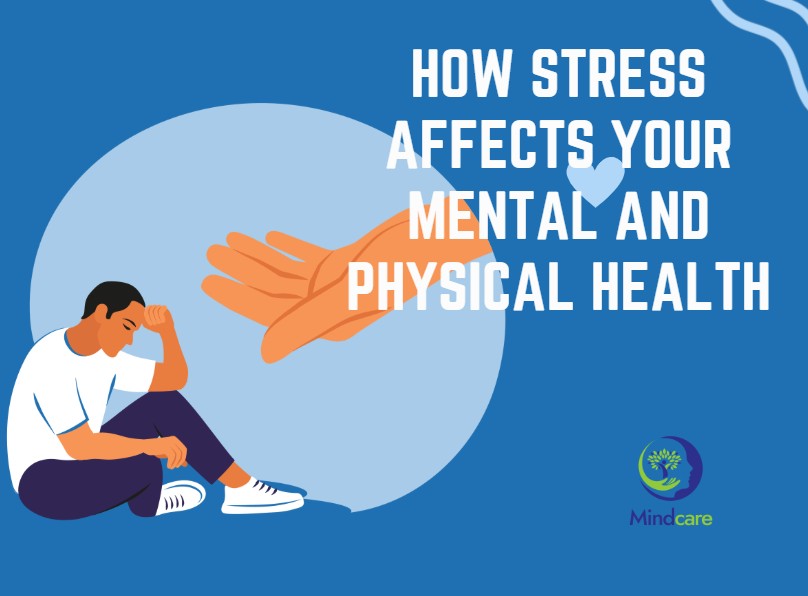How Stress Affects Your Mental and Physical Health
Understanding stress
Stress is the body’s natural response to challenges or threats. A little stress can motivate us, but chronic or overwhelming stress can take a serious toll on both mental and physical health. According to the American Psychological Association, long-term stress is linked to anxiety, depression, sleep problems, and even physical illnesses.
How stress impacts the mind
Stress changes the way the brain processes information. Common effects include:
- Difficulty concentrating: Stress hormones make it harder to focus or remember details.
- Emotional ups and downs: Irritability, frustration, or mood swings are frequent when stress is high.
- Increased anxiety: Ongoing stress can trigger or worsen anxiety symptoms. Learn more about Anxiety Therapy.
How stress impacts the body
The effects of stress aren’t “just in your head.” The body reacts strongly to long-term stress, which may cause:
- Headaches, muscle tension, and back pain
- Digestive problems such as bloating, cramps, or diarrhea
- Weakened immune system, making you more prone to illness
- Sleep problems, including insomnia or restless nights (Sleep Therapy can help with this)
- Increased risk of high blood pressure and heart problems
Practical ways to manage stress
While you may not eliminate stress completely, you can manage it in healthier ways:
- Relaxation techniques: Deep breathing, meditation, and yoga can reduce tension.
- Physical activity: Exercise releases endorphins, the body’s natural stress relievers.
- Healthy routines: Maintain regular sleep, balanced meals, and reduce caffeine intake.
- Support network: Talking with friends, family, or a therapist helps release emotional pressure.
When to seek help
If stress feels constant and begins interfering with work, relationships, or health, professional support can make a big difference. Therapy provides tools to manage stress effectively and improve overall well-being. Learn more about Stress Management Therapy at MindCare.
Conclusion
Stress is a natural part of life, but it shouldn’t control your life. Understanding its effects on both mind and body is the first step toward healthier coping strategies. If you’re struggling with persistent stress, remember that support is available and recovery is possible.


